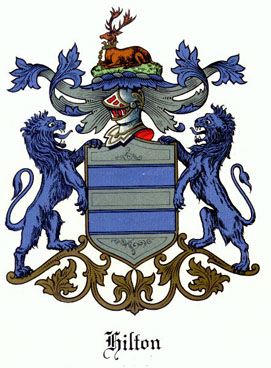|
Although I'm a relative newcomer in researching my ancestors and those of my wife (Susan Dressler Ballard Hilton), progress has been made in the past several years--mostly because of visits to Pittsburgh, Pennsylvania, and through many wonderful connections made via the Internet. Norma Dressler Ballard (Susan's mother) also has been of tremendous help.
My family genealogy pages are devoted primarily to research on these surnames:
- BALLARD
- BYARS
- DRESSLER
- Franks
- HILTON
- Krug
- Lauderback (Lauterbach/Lauterback/Lauderbatch)
- Schade
- Strange
- Summerscales
- Werle (Werley)
- Wisher
These pages will be updated as more information comes in via on-line research and family detective work, so check back often to see what kind of progress has been made. We also hope to be adding photos soon.
Please contact Bill Hilton Jr. if you have corrections, additions, questions, or new information.
HILTON
Living near a hill, from old English hyll "hill" + tun "enclosure" or "settlement."
BYARS
Scottish and northern English name for someone who lived near a cattleshed.
SCHADE
German and Dutch from schade "damage," a derivative of schaden "to do damage"; generally a nickname for a thug or clumsy person or, more particularly, a robber knight who raided others' lands.
FRANKS
German, Dutch, Scandinavian, Slovenian, Czech, Hungarian, and Jewish (Ashkenazic): ethnic or regional name for someone from Franconia (German Franken), a region of southwestern Germany so called from its early settlement by the Franks, a Germanic people who inhabited the lands around the river Rhine in Roman times. In the 6th-9th centuries, under leaders such as Clovis I (C. 466-511) and Charlemagne (742–814), the Franks established a substantial empire in western Europe, from which the country of France takes its name. The term Frank in eastern Mediterranean countries was used, in various vernacular forms, to denote the Crusaders and their descendants, and the American surname may also be an Americanized form of such a form. This also came be used as an adjective meaning "free," "open-hearted," or "generous," deriving from the fact that in Frankish Gaul only people of Frankish race enjoyed the status of fully free men.
Click here to visit my main Web sites for
Operation RubyThroat: The Hummingbird Project
and for
Hilton Pond Center for Piedmont Natural History
|
